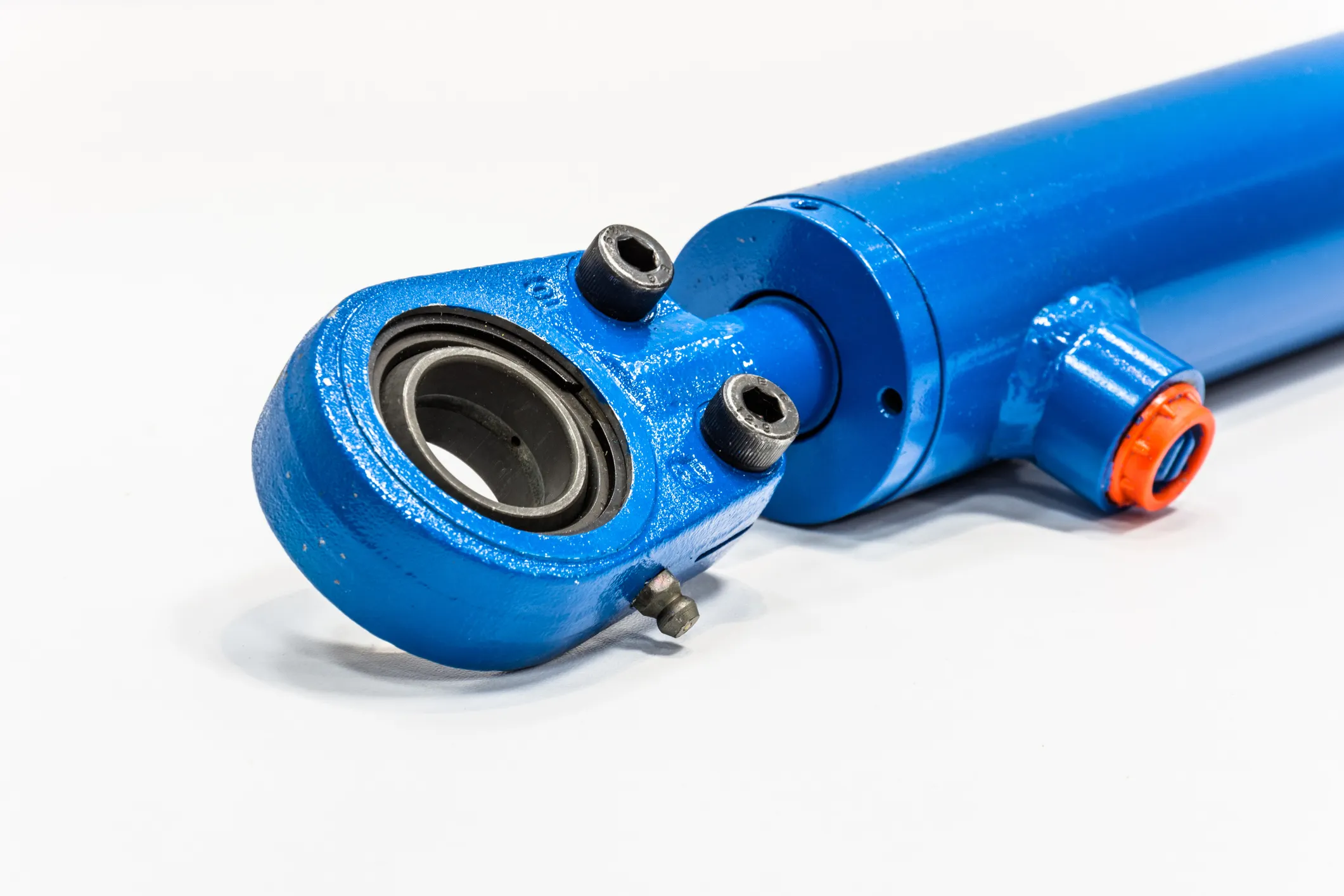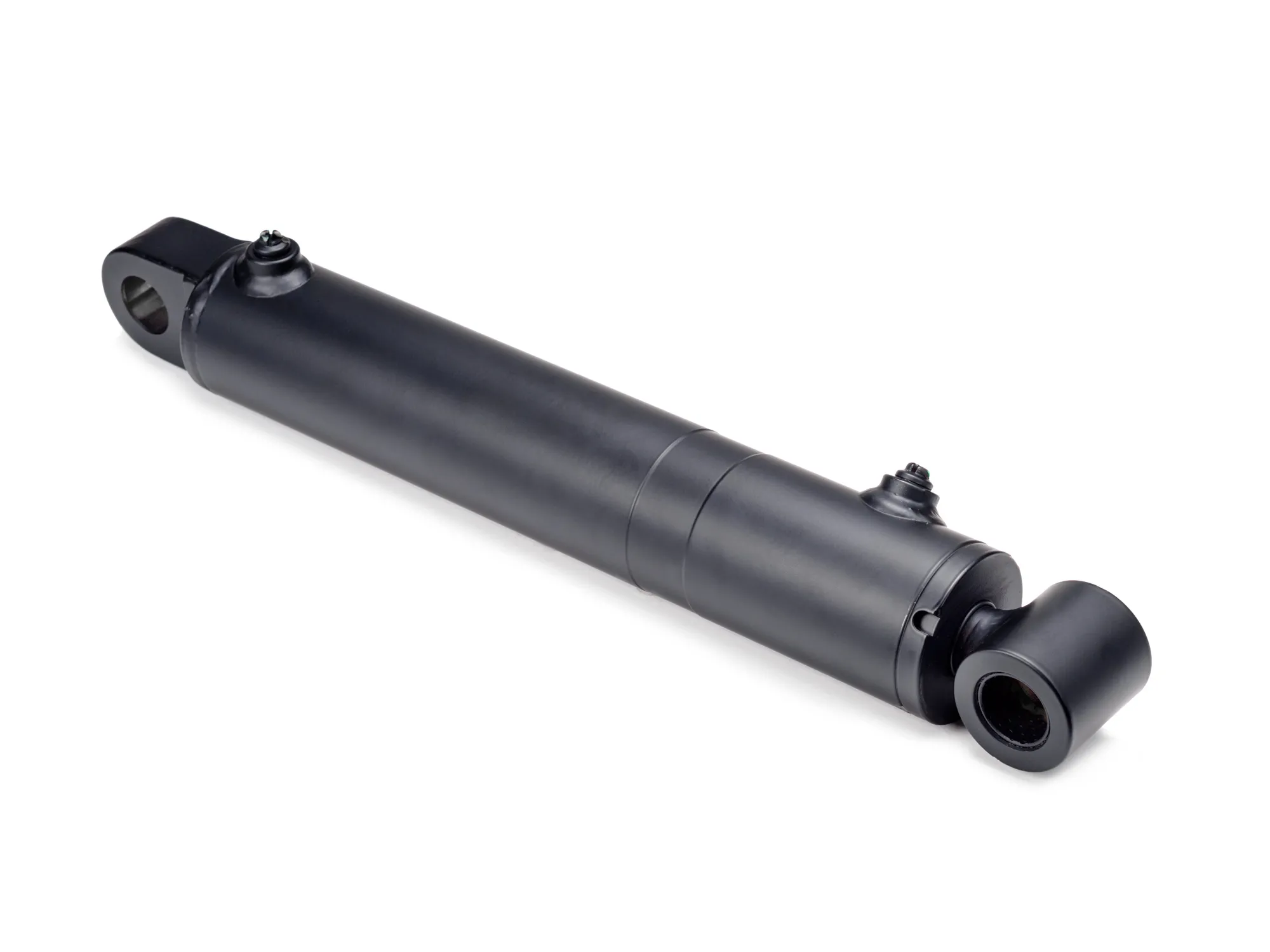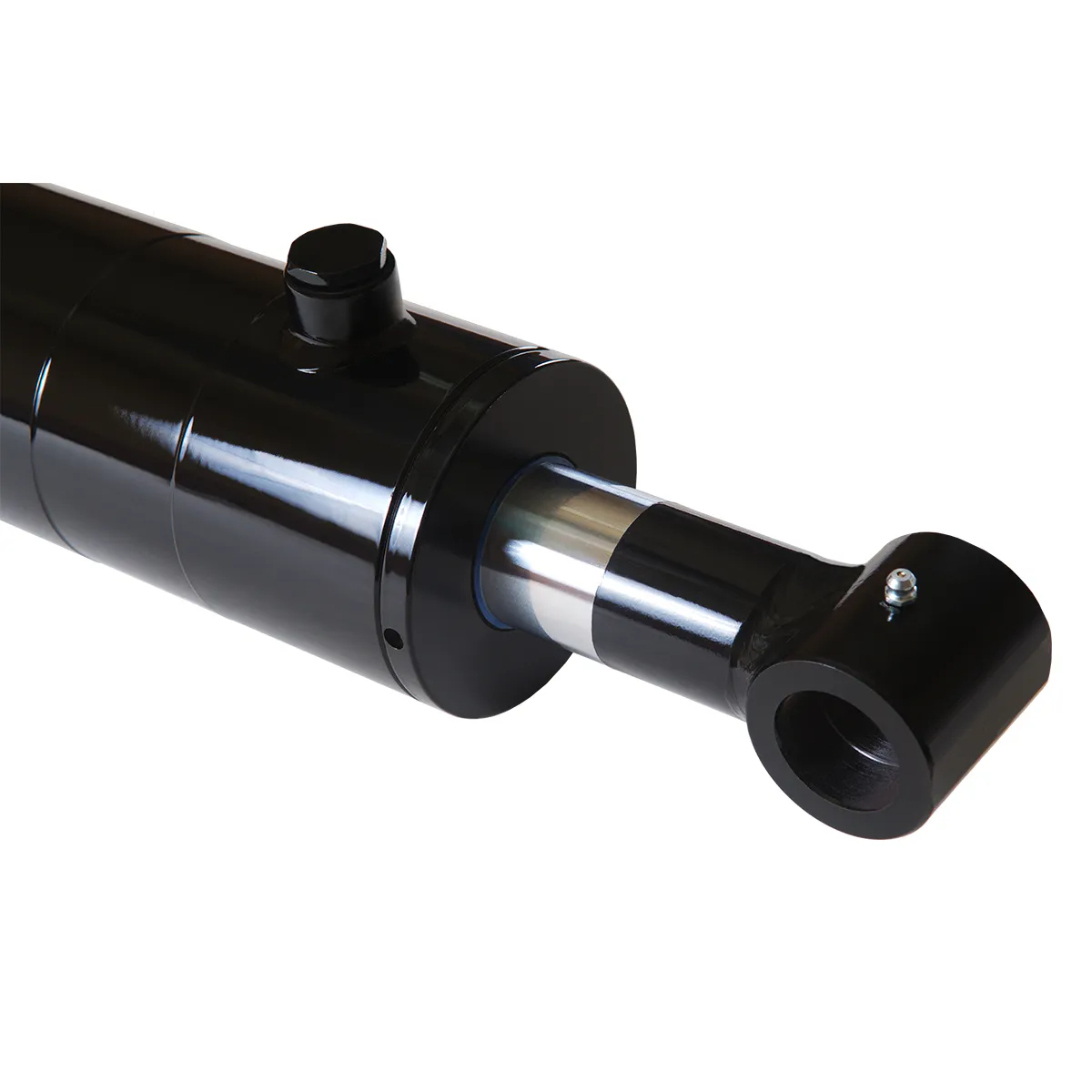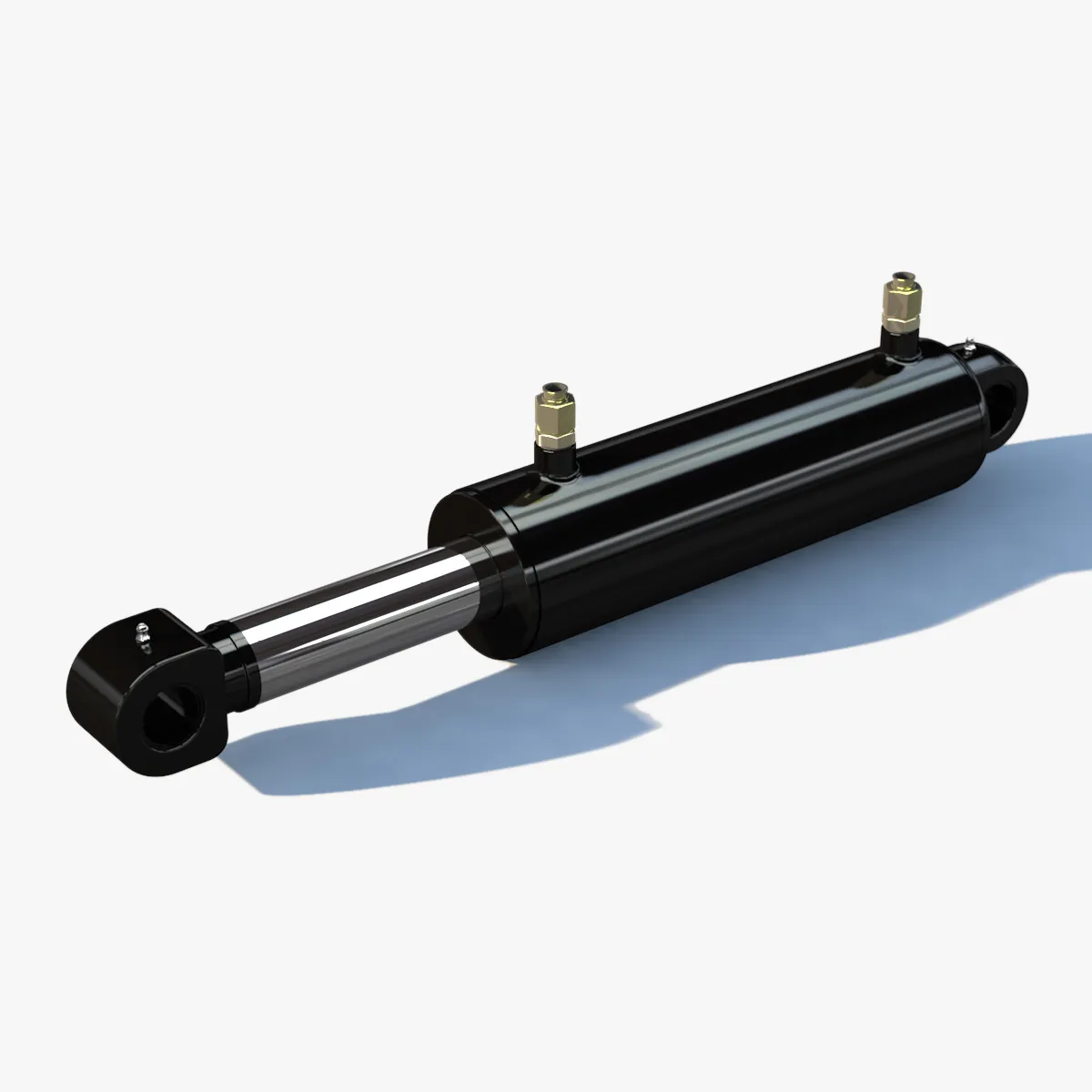Understanding Mill-Type Welded Hydraulic Cylinders
Introduction
In this article, we will delve into the world of mill-type welded hydraulic cylinders. These specialized components play a crucial role in hydraulic systems across various industries. We will explore their design, working principle, types, advantages, performance characteristics, applications, maintenance, and more.
Mill-Type Welded Hydraulic Cylinder Design
When it comes to the design of mill-type welded hydraulic cylinders, several key components come into play. The shell, inner cylinder, piston, and other elements are meticulously crafted to ensure strength, durability, and optimal performance. Welding technology is used during the manufacturing process to achieve these design considerations.

Manufacturing Process
The manufacturing process of mill-type welded hydraulic cylinders involves precise welding techniques to join the components securely. This ensures that the cylinder can withstand high pressures and loads while maintaining operational efficiency.
Working Principle
The working principle of mill-type welded hydraulic cylinders involves the conversion of fluid energy into mechanical force. As hydraulic fluid is pressurized, it acts on the piston inside the cylinder, generating linear motion. This principle is fundamental to the functioning of various hydraulic systems.
Types of Mill-Type Welded Hydraulic Cylinders
There are three main types of mill-type welded hydraulic cylinders, each with its unique configuration and application. Understanding the differences between these types can help in selecting the right cylinder for specific hydraulic system requirements.
Single-Acting Cylinders
Single-acting cylinders exert force in one direction and rely on an external force, such as a spring, to retract the piston. They are commonly used in applications where a single direction of motion is required.
Double-Acting Cylinders
Double-acting cylinders can exert force in two directions, both extending and retracting the piston. These versatile cylinders are suitable for applications that require bi-directional movement.
Telescopic Cylinders
Telescopic cylinders consist of multiple nested stages that allow for varying stroke lengths within a compact design. They are often used in applications where space is limited, and precise positioning is essential.
Advantages of Mill-Type Welded Hydraulic Cylinders
Mill-type welded hydraulic cylinders offer several advantages that make them preferred choices in various industries.
High Load Capacity

These cylinders can withstand heavy loads without compromising performance, making them ideal for demanding applications.
Long Stroke
With the ability to provide extended strokes, mill-type welded hydraulic cylinders are suitable for applications that require precise linear motion over significant distances.
Ruggedly Durable
The robust construction of these cylinders ensures long-term durability and reliable operation even in harsh environments.
Performance Characteristics
The performance characteristics of mill-type welded hydraulic cylinders are essential considerations when selecting the right cylinder for a specific application.
Working Pressure and Range
Understanding the typical working pressure and pressure range of the cylinder is crucial for ensuring optimal performance and safety in hydraulic systems.
Load Capacity and Speed
Factors that affect the cylinder’s load capacity, speed, and responsiveness should be carefully evaluated to meet the requirements of the application.
Applications of Mill-Type Welded Hydraulic Cylinders
Mill-type welded hydraulic cylinders find widespread use across various industries due to their versatility and reliability.
Heavy Equipment
In heavy equipment applications, these cylinders are used for lifting, pushing, and tilting operations in construction, mining, and agricultural machinery.
Industrial Machinery
Industrial machinery relies on mill-type welded hydraulic cylinders for precision movement, clamping, and positioning in manufacturing processes.
Mining Operations
The rugged design of these cylinders makes them well-suited for the harsh conditions of mining operations, where they are used in drilling, crushing, and material handling equipment.
Design Considerations and Selection Criteria
When choosing a mill-type welded hydraulic cylinder, various design considerations and selection criteria should be taken into account to ensure optimal performance and longevity.

Bearing Capacity
The cylinder’s bearing capacity determines its ability to withstand loads and pressures without failure, making it a critical factor in selecting the right cylinder for the application.
Sealing and Durability
Proper sealing and durability are essential for preventing leaks and ensuring the longevity of the cylinder in demanding operating conditions.
Sealing and Lubrication
Effective sealing and lubrication of mill-type welded hydraulic cylinders are vital for maintaining optimal performance and extending the cylinder’s lifespan.
Seal Materials
Using high-quality seal materials, such as piston seals, rod seals, and wear-resistant compounds, is crucial for preventing fluid leaks and contamination.
Lubrication Practices
Regularly lubricating the cylinder’s components with the appropriate hydraulic oil helps reduce friction, wear, and corrosion, ensuring smooth operation.
Preventive Maintenance
Implementing regular inspection and preventive maintenance measures can help prolong the life of mill-type welded hydraulic cylinders and prevent costly downtime.
Inspection Procedures
Regularly inspecting the cylinder for wear, damage, and leaks can help identify potential issues early and address them before they escalate.
Maintenance Tasks
Performing maintenance tasks such as seal replacement, lubrication, and calibration inspections according to the manufacturer’s guidelines is essential for optimal cylinder performance.
Installation Guide
Proper installation of mill-type welded hydraulic cylinders is crucial for ensuring safe and efficient operation within hydraulic systems.
Installation Steps
Follow the manufacturer’s installation guidelines carefully, ensuring correct alignment, mounting, and connection of the cylinder to the hydraulic system for optimal performance.
Safety Considerations
When using mill-type welded hydraulic cylinders, it is essential to prioritize safety measures to prevent accidents and ensure the well-being of operators and equipment.
Environmental Factors
Consider environmental factors such as temperature, humidity, and exposure to contaminants when selecting and operating mill-type welded hydraulic cylinders to maintain performance and longevity.
Fault Diagnosis and Troubleshooting
Understanding common faults and problems that may occur with mill-type welded hydraulic cylinders can help in diagnosing issues and implementing effective solutions.
Troubleshooting Tips
Provide troubleshooting tips and solutions for common problems such as leaks, cylinder drift, and insufficient pressure to assist in resolving issues promptly and effectively.
FAQs
Here are answers to some common questions related to mill-type welded hydraulic cylinders:
What are the advantages of mill-type welded hydraulic cylinders?
Mill-type welded hydraulic cylinders offer high load capacity, long stroke, and rugged durability, making them ideal for demanding applications.
What are the main components of a mill-type welded hydraulic cylinder?
The main components include the shell, inner cylinder, piston, seals, and hydraulic fluid, all working together to generate linear motion.
How do mill-type welded hydraulic cylinders differ from other types?
Mill-type welded hydraulic cylinders feature a robust welded construction designed for high-pressure applications, offering enhanced strength and durability compared to other cylinder types.
Long Tail Keywords
Here are three long tail keywords related to mill-type welded hydraulic cylinders:
Customized Mill-Type Welded Hydraulic Cylinder Solutions
Customization options allow for tailored cylinder designs to meet specific application requirements and performance expectations.
Optimizing Mill-Type Welded Hydraulic Cylinder Performance
Enhancing cylinder performance through optimization techniques ensures efficient operation and extended service life in diverse hydraulic systems.

Developing Mill-Type Welded Hydraulic Cylinder Specifications
Creating detailed technical specifications for mill-type welded hydraulic cylinders enables precise manufacturing and seamless integration into hydraulic applications.
Company Focus
Our company specializes in hydraulic cylinder replacement manufacturing, offering a comprehensive product line to meet diverse industry needs. As a leading manufacturer and distributor, we provide professional services, international certifications, custom solutions, advanced production equipment, and reliable after-sales support to our customers worldwide.
Author: lyl
